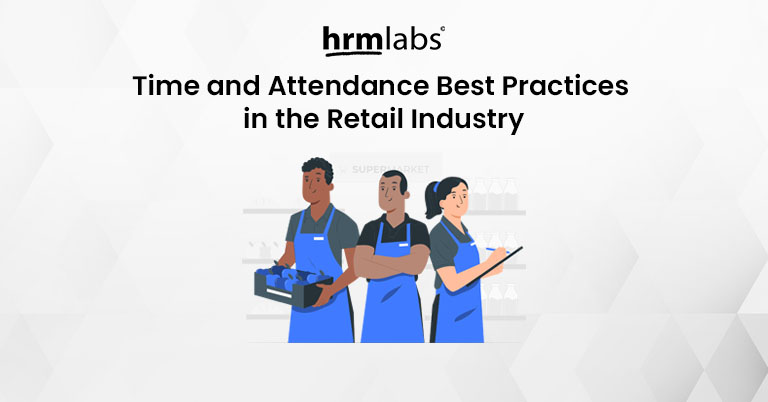In the fast-paced world of retail in the Philippines, where customer satisfaction hinges on efficient service, managing employee time and attendance is paramount. With fluctuating customer traffic, diverse shift schedules, and often part-time staff, retail businesses face unique challenges in tracking employee hours accurately.
Let’s delve into the importance of effective time and attendance management and explore how Huaman Resources Management System (HRMS) can optimize this critical function.
Challenges in Managing Time and Attendance in Retail
Managing time and attendance in the retail industry presents a unique set of challenges that can significantly impact business operations.
- Complex Scheduling Needs: Retail businesses often operate with extended hours, including weekends and holidays, which require flexible and sometimes irregular scheduling. Managing shifts, ensuring adequate coverage, and accommodating employee preferences can be a logistical challenge.
- High Employee Turnover: The retail industry typically experiences higher employee turnover rates, making it difficult to maintain consistent records and track attendance accurately. This turnover also complicates payroll calculations and benefits administration.
- Compliance with Labor Laws: Philippine labor laws mandate specific requirements for overtime pay, holiday pay, and rest days. Ensuring compliance with these regulations is crucial to avoid legal issues and penalties.
- Manual Tracking and Errors: Many retail businesses still rely on manual methods, such as paper timesheets or basic spreadsheets, to track employee attendance. These methods are prone to errors, leading to inaccuracies in payroll and potential disputes with employees.
Best Practices for Time and Attendance Management
Here are some strategies that can help retail businesses in the Philippines manage time and attendance more effectively.
- Implement Automated Timekeeping Systems: Transitioning from manual tracking to an automated timekeeping system is highly effective. It improves accuracy and reduces errors. Automated systems capture clock-ins and clock-outs in real-time. This minimizes the risk of discrepancies and ensures payroll is based on accurate data.
- Use Employee Self-Service Portals: Empower employees by giving them access to self-service portals where they can view their schedules, request time off, and track their hours worked. This transparency reduces confusion and allows employees to manage their time more effectively.
- Regularly Review and Update Schedules: Regularly reviewing and updating employee schedules ensures that staffing levels are adequate to meet customer demand. It also helps in identifying patterns that may lead to burnout or overwork, allowing for timely adjustments.
- Ensure Compliance with Labor Laws: Stay up-to-date with Philippine labor laws. Ensure your timekeeping practices align with legal requirements. Automated systems can be programmed to calculate overtime, holiday pay, and rest days. These calculations follow the latest regulations, reducing the risk of non-compliance.
- Integrate Time and Attendance with Payroll: Integrating time and attendance data with payroll processing ensures that employees are paid accurately and on time. This integration also simplifies the payroll process, reducing the administrative burden on HR teams.
How HRMS Can Help
An advanced HR and payroll system like HRMLabs offers comprehensive solutions to the challenges faced by retail businesses in managing time and attendance. Here’s how HRMLabs can optimize these processes:
- Automated Timekeeping and Scheduling: HRMLabs provides automated timekeeping and scheduling features that allow retail businesses to manage employee shifts efficiently. The system can handle complex scheduling needs, accommodate employee preferences, and ensure that there is always adequate coverage.
- Accurate Payroll Processing: With HRMLabs, time and attendance data is seamlessly integrated with payroll processing, ensuring that employees are paid accurately based on their hours worked. The system also automatically calculates overtime, holiday pay, and other compensation according to Philippine labor laws.
- Compliance Management: HRMLabs is designed to help businesses comply with local labor laws by automating the calculation of mandatory benefits. Ensuring that all payroll processes adhere to legal requirements. This reduces the risk of legal issues and ensures that the business remains compliant with Philippine regulations.
- Employee Self-Service: HRMLabs includes employee self-service portals, empowering employees to manage their schedules, request time off, and track their attendance. This transparency fosters trust and engagement among employees, leading to higher satisfaction and retention.
- Scalability and Flexibility: As retail businesses grow, HRMLabs can scale to accommodate more employees. It can also handle more complex scheduling needs. The system is flexible enough to manage remote work and other non-traditional arrangements. This makes it a valuable tool for modern retail businesses.
Conclusion
Effective time and attendance management is essential for the success of retail businesses in the Philippines. Retail businesses can overcome the challenges of managing employee schedules, tracking attendance, and ensuring accurate payroll by implementing best practices. Leveraging advanced HR and payroll systems like HRMLabs further enhances these processes. These practices not only improve compliance with local labor laws but also enhance workforce efficiency, leading to better business performance.

